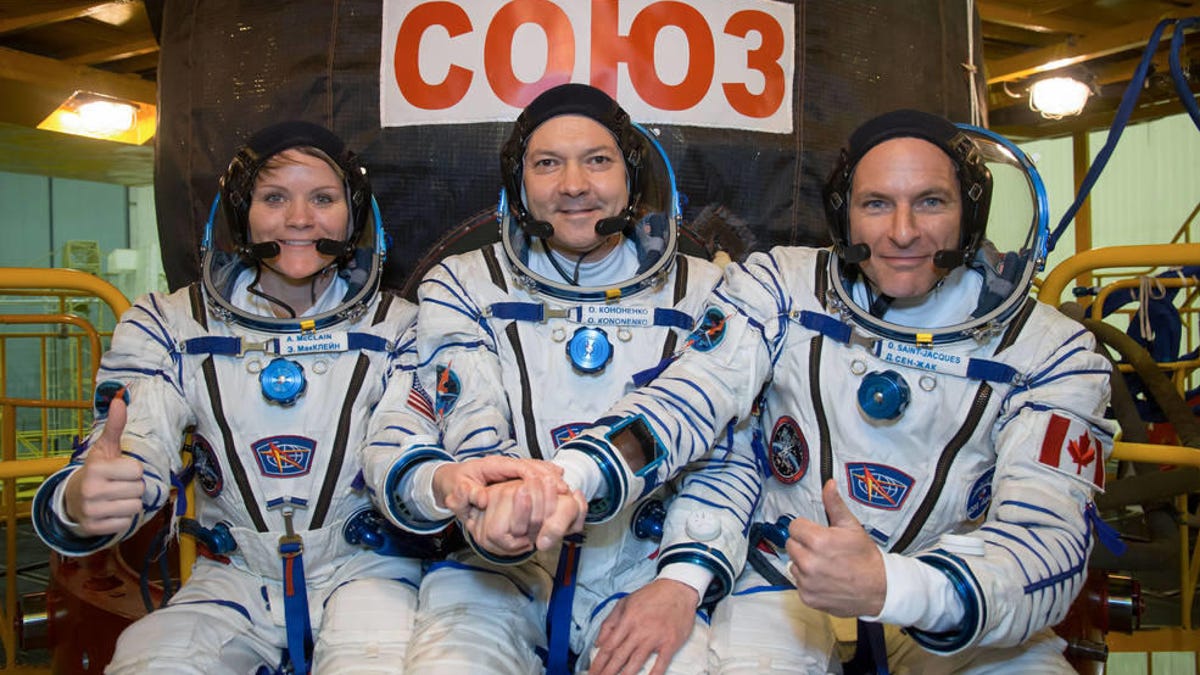How to watch NASA, Russia launch to the ISS after rocket failure
Astronauts are headed to the International Space Station just weeks after the Soyuz's last attempt to reach orbit failed.

Anne McClain of NASA (left), Oleg Kononenko of Roscosmos (center) and David Saint-Jacques of the Canadian Space Agency (right) will launch to the International Space Station aboard a Russian Soyuz craft Monday.
Astronauts from the United States, Russia and Canada will launch to the International Space Station (ISS) early Monday for the first time since a scary aborted launch of a Russian Soyuz bound for the ISS less than two months ago.
NASA astronaut Anne McClain will join Russia's Oleg Kononenko and David Saint-Jacques from the Canadian Space Agency aboard a Soyuz MS-11 spacecraft set to blast off from the Baikonur Cosmodrome in Kazakhstan at 3:31 a.m. PT.
In October, a two-man crew made up of NASA's Nick Hague and Russian Cosmonaut Aleksey Ovchinin saw their voyage to orbit cut short when the first stage of the rocket failed to separate properly, triggering an emergency evacuation procedure. The two astronauts wound up floating back to the ground in the Soyuz instead of making it to space.
Last month Roscosmos, Russia's space agency, said it had taken measures to prevent the problem from happening again and NASA administrator Jim Bridenstine said he was confident the next ISS crew would fly in a Soyuz in December.
Now here we are and everything seems to be a go to try again. The Soyuz carrying the next three ISS crew members will launch just a day before SpaceX plans to send a Dragon spacecraft filled with cargo to the International Space Station from Florida's Kennedy Space Center on Tuesday.
The Soyuz is set to dock with the International Space Station about six hours after Monday's launch, where the trio will be welcomed aboard when the hatches between the two craft open less than two hours later. They'll be greeted by current occupants Alexander Gerst of the European Space Agency, NASA's Serena Auñón-Chancellor and Roscosmos' Sergey Prokopyev, who are scheduled to then ride the Soyuz back to Earth on Dec. 20.
NASA TV will be broadcasting the Soyuz launch live from Kazakhstan Monday and you can watch (with your fingers crossed) via the embedded feed below:
NASA turns 60: The space agency has taken humanity farther than anyone else, and it has plans to go further.
Taking It to Extremes: Mix insane situations -- erupting volcanoes, nuclear meltdowns, 30-foot waves -- with everyday tech. Here's what happens.

